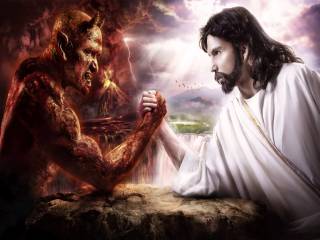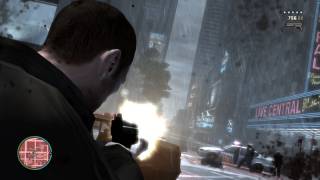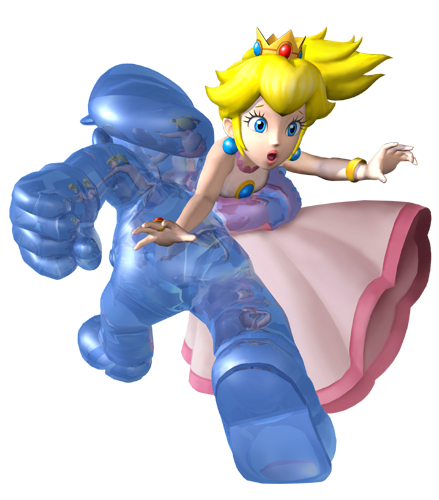Dialogue Options Vol. 3: Hero Will Prevail
By jjnen 15 Comments
Hello and welcome to the third edition of this experiment called ”Dialogue Options”. Here we put our collective minds together and share our toughts on a single issue each time. Hope is that by presenting wide spectrum of opinions like this we can leave our personal biases behind and think about the issues with an open mind. Without further ado, I present to you today's topic:

This time we are talking about ”why does the good guy always have to win?”. A simple question really and isn't worth asking in gaming but all forms of story telling. It's a subject worth talking about for multiple reasons.
Why the Good Guy?
by Gamer_152
Of course the good guys don’t literally always win, and some games don’t have good guys or bad guys at all, but where possible, there is a clear trend towards the good guy triumphing over the bad guy. To some degree this is obviously a wider pattern in entertainment. When it comes to the real world, we have a fundamental desire to see good win out over evil, and that manifests in our fiction. Stories which end on a high note also seem to be more palatable to the general population.

There do seem to be some motivators for games specifically to end with the good guy winning though. For one, the protagonist is often the good guy, or at very least has the option to be, partly because of the reasons mentioned above and because we empathise with them, and in games the actions of the protagonist and player are inextricably linked. If the protagonist falls to the bad guy in the end, it’s the game in a way telling the player “You know all that work you did over the last X hours? That counts for nothing”. Not a pleasant experience.

Games also generally depict conflicts of a kind and on a scale where the bad guy winning would have pretty undesirable implications. If a piece of fiction is about something like the protagonist trying to win the heart of the person they love, or someone trying to escape the criminal underworld, when the “bad guy” wins we can empathise with the protagonist because the story works on a personal level. Games however, often have stories with more focus on the fate of the world as a whole. If the terrorists win at the end of a modern military shooter, or the world ends at the conclusion of an action-adventure, there’s generally little emotional appeal to that in itself.
However, what games specifically can do is provide us with “bad endings” alongside the “good” ones, so even if it’s less enjoyable for many, there’s still the option there to see what happens if the bad guy wins. With their focus on destruction and gameplay, games are also better poised to show us the fun of being evil. Ultimately though, I think the fact so many games see things in terms of this simple black-and-white good/bad dichotomy says something about how mature this medium is in terms of storytelling.
The Art of Storytelling in Games is Young
by mosespippy
Narrative in games is not usually complex. The simplest plot structure consists of two opposing sides and a conflict. Luckily, conflict is what games can do easily, so the authors only need to come up with two sides to oppose each other. Antiheroes typically have heroic objectives but have unheroic or villainous characteristics or commit immoral actions to achieve their moral goals. Good guy fights evil and prevails is a very easy story to write. Good guy with character flaws fights evil requires a bit more work to do well.
Developing characters through gameplay is still a rare occurrence. The design of games is often more important than the writing of plot or character development. A game developer’s resources get spent on making the interactive parts of games function properly because it is crucial to the game’s success. The writing is almost secondary. Frequently features will change or be removed part way through a game’s development and that can force late changes to the script. The writing has to be flexible enough that changes can happen if something doesn’t work properly. That means it has to either be irrelevant of the gameplay or it has to be simple enough that rewrites can be easily made.

One of the most important aspects of games is their ability to place the player in a role where they have more power than is possible in the real world. Games are power fantasies. There needs to be narrative reasons why the protagonist has all this power. Forcing the player to do actions with these powers that are indicative of character flaws can make players feel uncomfortable. If they have to play in a way that is juxtaposed to the narrative then it can make the game feel off.
Grand Theft Auto IV has been criticized for this problem a lot. The narrative is of an immigrant with a dark past who wants a peaceful future. The gameplay has him mowing down waves of enemies and kidnapping civilians. The gameplay necessitated an immoral character while the plot required a moral character. The end result is a character that feels schizophrenic.
Narratives and game mechanics are starting to be integrated together in more meaningful ways as the games industry matures. Developers will put more thought into how flawed characters should play and how that impacts plot structure. It’s still a very early industry and it has a long way to go but it’s ability to tell stories is improving with every release.
Not Very Often
by SexyToad
So why does the good guys always have to win? Well the good guy doesn't always win. There are examples of games where the player is a "bad guy." GTA is one of those examples. In GTA IV, for example, you play as Niko Bellic. Nico is essentially a "gangster." In the game you can, and urged to, steal cars, shoot people, and just be a menace. Most RPGs let the player be the "bad guy" and win as well. Let's take Fable 2 for example. Fable 2 is a Action RPG, in Fable you are the "hero". Throughout the game you can make choices which moves your karma meter in one way or the other. You can choose to be the bad guy by killing, sacrificing innocents, stealing, and so on. The point I'm trying to make is there are games that let the bad guy win. But there is a tons more games that let the good guy win. Why is that? I would say because, people play games to be a winner. The player, as the good guys, will do all these missions and quests, and spend so much time to get the final boss. What fun would it be if the boss just killed the good guy? After all that time you put into that game just to lose at the end, seems like a huge waste. Imagine Ocarina of Time where Ganondorf just kills Link at the end. The players would be disappointed and wouldn't want to play again.
Heroes, Brutus and Princesses
by Winternet

Our hero faces a long and seemingly impossible journey. He will encounter innumerous and highly difficult challenges. Commanded by a mighty and unreasonable evil villain, his foes are fearless, ruthless, merciless and they will stop at nothing to prevent our hero from “saving his princess”. The odds are stacked against our hero, but despite all of these he can take solace in one thing: he will win, in the end, he will win.
This almost undisputed fact is the center of our argumentation in this week’s blog. It is however something that isn't exclusive to video games. The “good guy always win” is one of the most common tropes, not only in video games, but also in TV, movies, comics, etc. There are many ways to explain this phenomenon and you can approach it by many different angles, be it from a philosophical standpoint or from a business standpoint, just to name a couple of examples. But, I want to raise a different question and therefore intend to leave the good guy behind and go a little off-script, in the hope of finding something more intrinsic to video games: “Why does the player have to win?” This is a more interesting question, in my opinion. If we focus solely on the story and the narrative aspect of the video game, we can draw some parallels to other creative works where we find examples that negate this question. For instance, in literature, we have the tragedy genre, where the main character goes through various levels of suffering and does not succeed in the end. Tragedy as a literature genre was very popular in the Ancient Greece and Ancient Rome, being later revived in the Renaissance period.
As an example, we can look at William Shakespeare’s play, Julius Caesar. In very crude terms, the main character (Marcus Brutus) leads a conspiracy to assassinate his close friend Julius Caesar, in order to stop republican Rome turning into a monarchy. Brutus and his co-conspirators succeed in assassinating Caesar, but are later driven away from Rome and have to battle Augustus (Caesar’s adopted son) and Marcus Antonius (Caesar’s right-hand man). The battle does not go in Brutus favor and he ends up committing suicide. As we can see, Brutus does not “win” in the end, not only because he loses his battle and suicides, but also because he fails to prevent Rome turning into an autocracy, as Augustus is later proclaimed the 1 emperor of Rome.
So, what is stopping video games from having similar stories? Is the industry just not at that level of maturity yet? Or do the developers lack the panache to go for more bold and audacious storytelling and therefore prefer to follow more well-known and popular structures? Sure, we have our own bash of antiheroes, character deaths and film-noir-esque video games, but nothing that truly goes for a sense of defeat when the credits roll. Is the sense of failure even something that players would feel ok with? It’s probably something we won’t have to worry about in the near future as we continue to search castles and rescue princesses.
Duder, It's Over
That's all for this time and I would like to thank you for reading this. I'd also like to thank Pezen for creating again that awesome banner and everyone else in our small group who got interested in this idea in the first place.
For now we have crew big enough to accomplish things I've set to the horizon, but if you are really interested to joining in, PM me. Also if you have ideas for new topics of discussion just post them here or send a PM.
